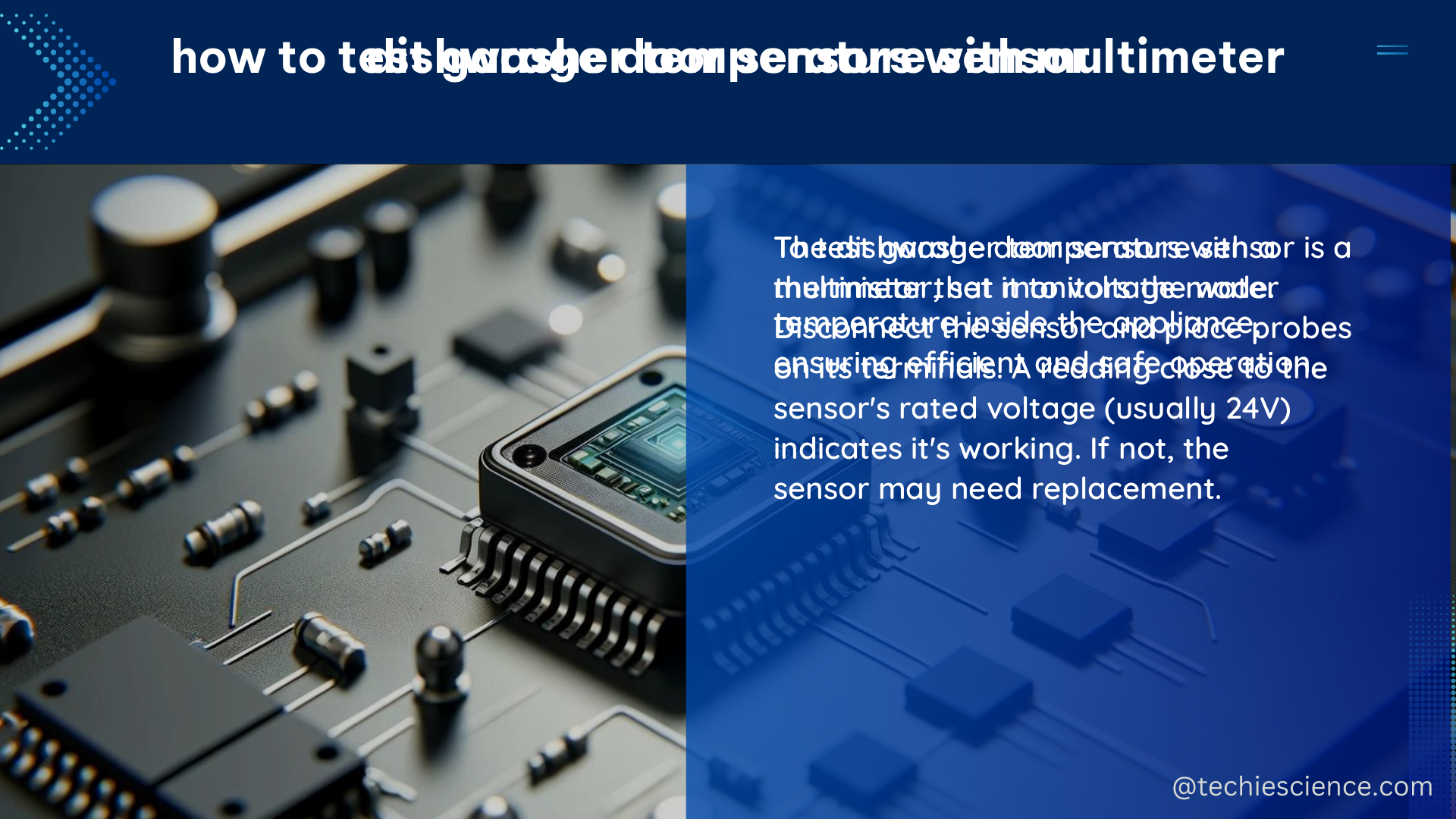The dishwasher temperature sensor is a critical component that ensures the energy efficiency and performance of modern dishwashers. These sensors are designed to monitor and regulate the temperature of the water used during the washing cycle, helping to optimize energy consumption and cleaning effectiveness. By accurately measuring the water temperature, the sensor can adjust the heating element to maintain the ideal temperature for washing dishes, typically between 120°F and 150°F (49°C and 65°C).
Understanding the Importance of Dishwasher Temperature Sensors
Dishwasher temperature sensors play a crucial role in meeting the energy efficiency standards set by the Energy Independence and Security Act of 2007 (EISA). These standards aim to reduce energy consumption and greenhouse gas emissions, contributing to national energy savings and cost reductions for consumers.
The technical specifications of dishwasher temperature sensors vary depending on the manufacturer and model, but they generally share common features such as:
- Temperature Measurement Range: A typical dishwasher temperature sensor has a measurement range of -40°F to 250°F (-40°C to 121°C).
- Accuracy: Dishwasher temperature sensors typically have an accuracy of ±2°F (±1.1°C).
- Response Time: The response time of a dishwasher temperature sensor is generally less than 10 seconds.
Locating and Replacing the Dishwasher Temperature Sensor

When it comes to DIY repairs or replacements of dishwasher temperature sensors, it is essential to consult the user manual or contact the manufacturer for specific instructions. The process typically involves:
- Locating the Sensor: The dishwasher temperature sensor is usually located near the heating element.
- Disconnecting the Electrical Connections: Carefully disconnect the electrical connections to the sensor.
- Removing the Old Sensor: Carefully remove the old sensor from its mounting position.
- Installing the New Sensor: Ensure that the new sensor matches the specifications of the original sensor to maintain optimal performance and energy efficiency.
Sensor Calibration and Maintenance
To ensure the continued optimal performance of the dishwasher temperature sensor, it is essential to:
- Calibrate the Sensor: Follow the manufacturer’s instructions for calibrating the sensor to ensure accurate temperature readings.
- Perform Regular Maintenance: Regularly clean the sensor and check for any signs of wear or damage to maintain its reliability.
Advanced Sensor Technologies
Dishwasher manufacturers are continuously innovating and incorporating advanced sensor technologies to improve energy efficiency and performance. Some of the latest advancements include:
- Dual-Sensor Systems: Some dishwashers feature dual-sensor systems that use both a water temperature sensor and a food soil sensor to optimize the washing cycle.
- Predictive Analytics: Dishwashers with advanced sensors can use predictive analytics to adjust the washing cycle based on the load size, soil level, and other factors, further improving energy efficiency.
- Wireless Connectivity: Some dishwashers are equipped with wireless connectivity, allowing the temperature sensor data to be monitored and analyzed remotely for improved diagnostics and maintenance.
Conclusion
Dishwasher temperature sensors are vital components that contribute to energy efficiency, performance, and cost savings. By accurately measuring and regulating water temperature, these sensors help maintain the ideal conditions for washing dishes while minimizing energy consumption. When replacing or repairing a dishwasher temperature sensor, it is essential to adhere to the manufacturer’s specifications and guidelines to ensure optimal performance and energy savings.
References:
- Public Law 110–140 110th Congress An Act – GovInfo (2007) Link
- Energy Conservation Standards for Consumer Water Heaters (2024) Link
- Energy Conservation Standards for Consumer Water Heaters FR (2024) Link

The lambdageeks.com Core SME Team is a group of experienced subject matter experts from diverse scientific and technical fields including Physics, Chemistry, Technology,Electronics & Electrical Engineering, Automotive, Mechanical Engineering. Our team collaborates to create high-quality, well-researched articles on a wide range of science and technology topics for the lambdageeks.com website.
All Our Senior SME are having more than 7 Years of experience in the respective fields . They are either Working Industry Professionals or assocaited With different Universities. Refer Our Authors Page to get to know About our Core SMEs.